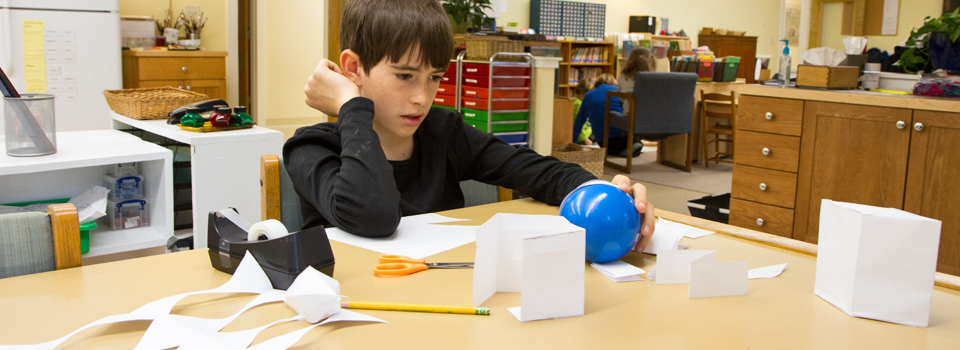Education does not end with academics. The MDS elementary classroom is plentiful with exercises that will develop in each student practical life and time management skills that enrich their physical dexterity and build confidence through the ability to independently perform the activities of daily life.
Practical Life
Sewing/Weaving
At the elementary level, students build hand strength and fine motor skills through card weaving, hand sewing and knitting using a spool and loom. All students in the classroom progress through these exercises which become more complex and require an increasing amount of coordination. These skills may not sound like skills critical to modern life, but there are many adults that are not able to sew on a button or mend a torn seam. Additionally, many of these exercises build logical reasoning, the ability to follow directions, measurement, geometry and patience, in addition to physical skills.
Gardening
Our students love to work in our class garden. Through guidance from staff and parent volunteers, the students manage a year-round garden including flowers, vegetables and herbs. When possible, we incorporate the vegetables in our cooking projects (see below), and the excess is sold and the proceeds are donated to the local Farmer Foodshare program to feed those in need.
Cooking
Once a month, the MDS elementary holds our Classroom Cooks program. In this program, the students prepare lunches that encompass both a variety of cooking skills and cultures. Because the students participate in the preparation, they are much more willing to try foods that they would not normally eat. Thus, we often experiment with exotic foods and international cuisines. The students in the class focus on basic tasks such as washing, sorting and mixing, with some students having more advanced roles in the preparation process including lessons on core cooking skills such as dicing, simmering and sauteing, along with vocabulary lessons that will prepare them for independently reading recipes and cookbooks in the future. Often, the monthly meal features food raised by the students in our class garden.
Time Management
Goal Setting
In addition to physical skills, the ability to effectively manage time and set goals is critical to each student’s long term success and happiness. At the lower elementary level, each student records their work using a daily goal sheet. This helps them gain a sense of accomplishment and introduces them to the process of goal setting. The upper elementary students set weekly goals, and each week meet with the teachers to determine whether they reached their goals, and how they were or were not successful. Through this process, they recognize the realistic boundaries of available work time, and how much they can accomplish during these times, balancing lessons, projects and their individual daily work. This replicates the ever-changing demands of work life as an adult, and prepares them for life regardless of career path. They gain confidence in their abilities, and pride in their ability to set and reach individual goals.

